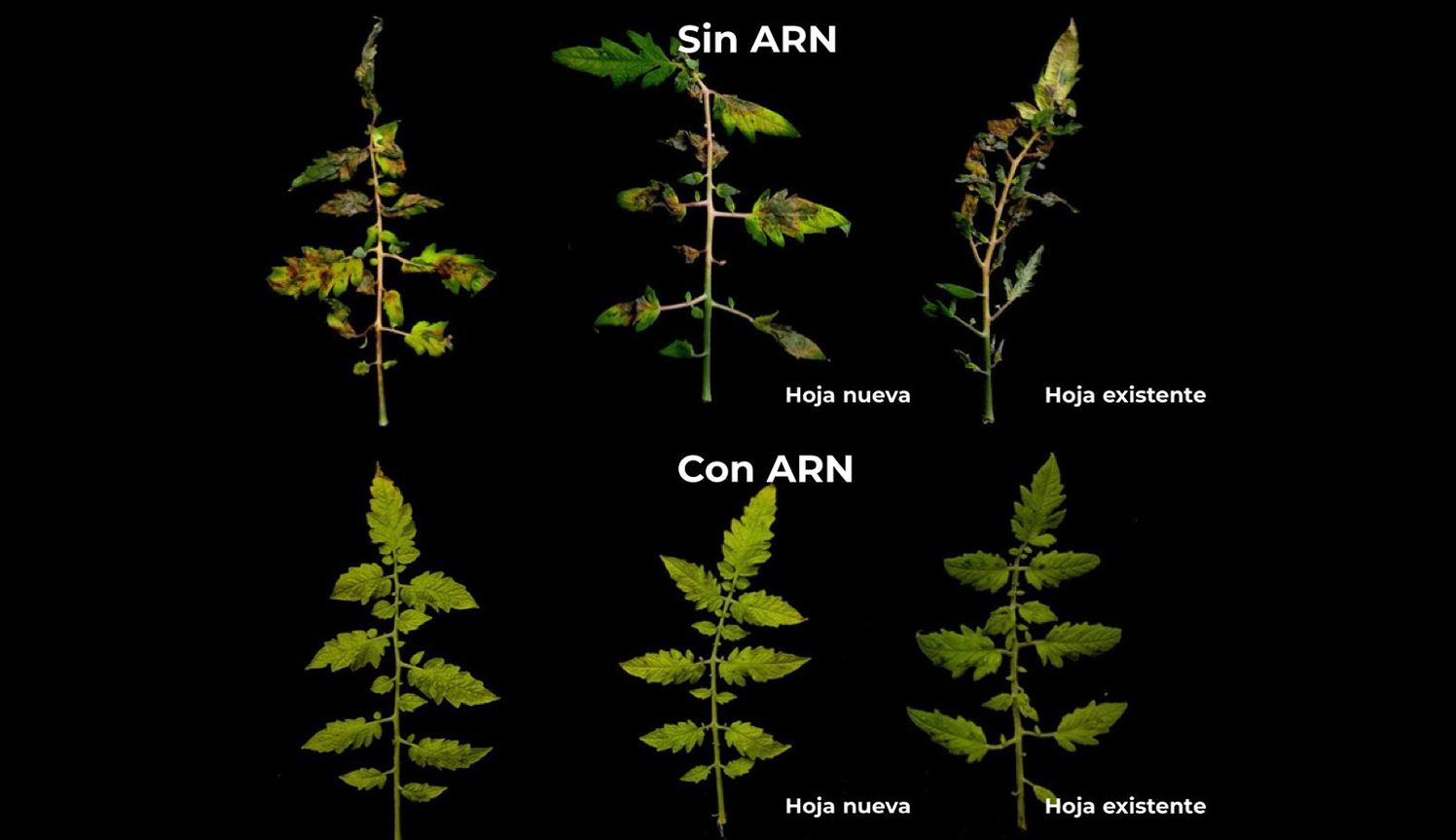Messenger RNA technology, which will be used in the development of vaccines for Coronavirus, can also be applied to crops. Based on this approach, the Apolo Biotech company, created by biotechnology and Conicet researcher Federico Ariel, developed a biological product that strengthens plant defenses to fight fungi and other pathogens, and as that avoids the use of pesticides and fungicides.
Apolo Biotech uses exogenous RNA (produced outside the plant) to “train” plants to develop an immune response against various types of fungi that attack fruit, vegetable and field crop plantations such as wheat
“RNA is a molecule that is present in all living cells and plays an essential role in the transmission of genetic information and the regulation of gene expression,” said Ariel.
“We modify plant and pathogen genes using exogenous RNA. These RNAs become “messengers” that silence the essential functions of the fungi, weakening them,” he explained. Unlike traditional agrochemicals, which work directly on pathogens, the “vaccination effect” stimulates the natural defense system of plants.making them more resistant to disease.
“What we do in the laboratory is to use messenger RNA to inform the plant about these fungi, and to protect itself. “We replace chemicals with information,” said the biotechnologist and entrepreneur.
Basic and applied science
Studies on messenger RNA won Katalin Karikó and Drew Weissman the Nobel Prize in Medicine in 2023. Therefore, the method used to isolate RNA is based on the research of Frances Arnold, an American scientist who won the Nobel Prize in Chemistry in 2018 for his work on the directed evolution of enzymes. It is a method of protein engineering that accelerates enzymatic processes (which promote chemical reactions) to create new molecules with multiple functions. In this case, the goal is to activate the internal defense mechanisms of the plants.
“We started with vegetables and fruits such as citrus and strawberries, which contain agrochemicals and cannot be exported, especially to markets like Europe, which are placing more and more restrictions on chemical products,” said Ariel.
This year, the company established a pilot RNA center that is a pioneer in Latin America and aims to export this solution to international markets, and to develop new bioproducts that will allow fight various pathogens such as viruses, bacteria and other microorganisms. Currently, his first biofungicide is at the approval stage with the National Administration of Medicines, Food and Medical Technology (ANMAT).
“We’re aiming for it It is considered a bioproduct so it can be used in organic agriculture. Europe approved the “Field to Fork strategy”, which is basically a ban table because foods containing traces of agrochemicals cannot be imported,” said Ariel. “The issue is that because it is a new development, the regulatory path is more complicated because there is no precedent.”
The company, with thirty employees and located in the Litoral Centro Technology Park, in Santa Fe, received a non-refundable grant from the Ministry of Science and the Inter-American Development Bank (IDB ). He was also supported by the Sadosky Foundation, which aimed to develop a computer platform for the design of RNA molecules.
“Our project has a triple effect: on the one hand, it benefits producers, as we avoid the use of agrochemicals; also to the workers and communities affected by the smoke; and for consumers, who have access to healthy and environmentally friendly food,” said the founder of Apolo Biotech. “Today there is a dilemma between increasing productivity and caring for ecosystems, and This dilemma is resolved by supporting and funding more science“, he concluded.
2024-11-29 02:48:00
#vaccine #boosts #crops #natural #defense #system


